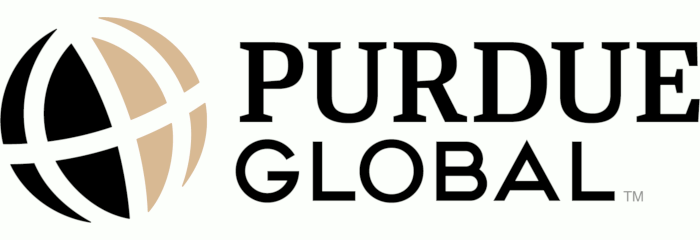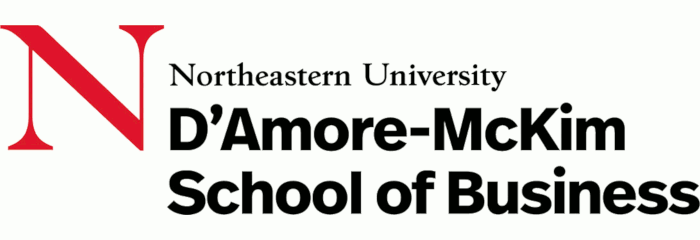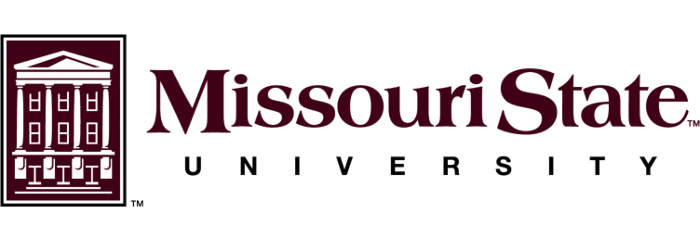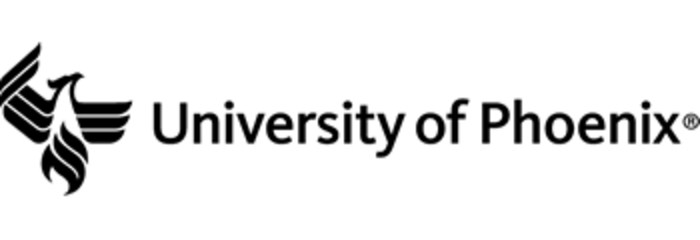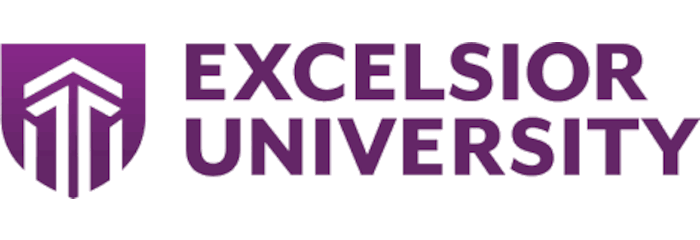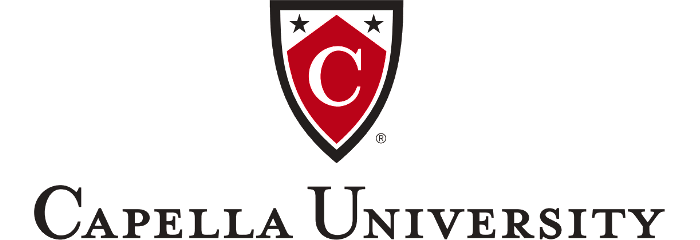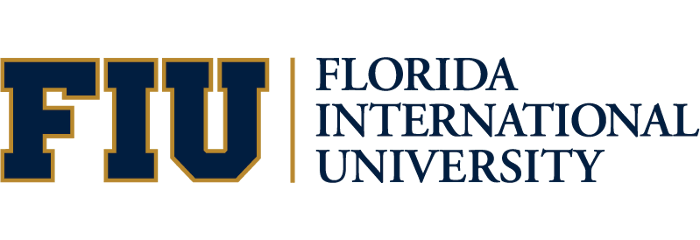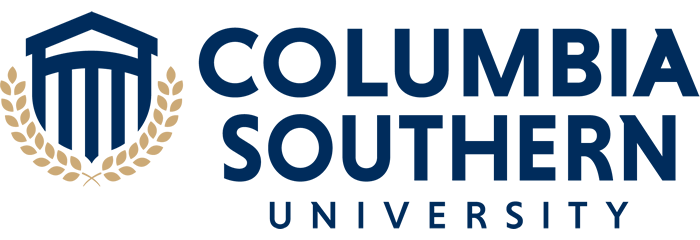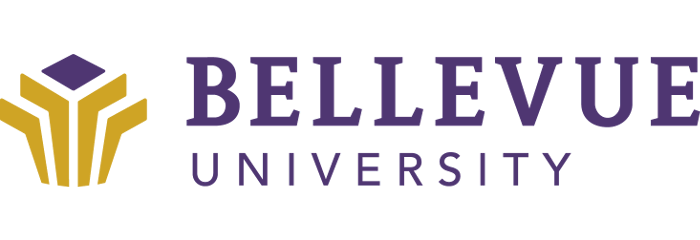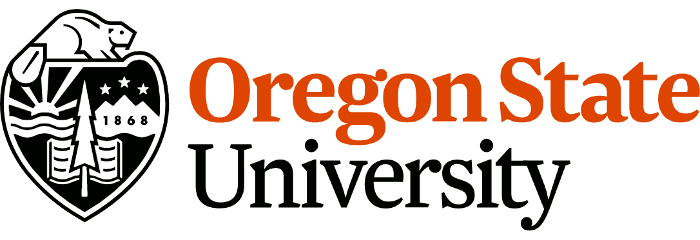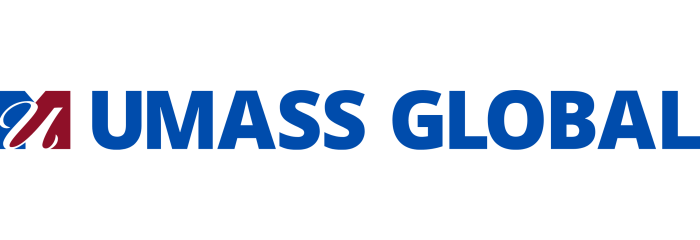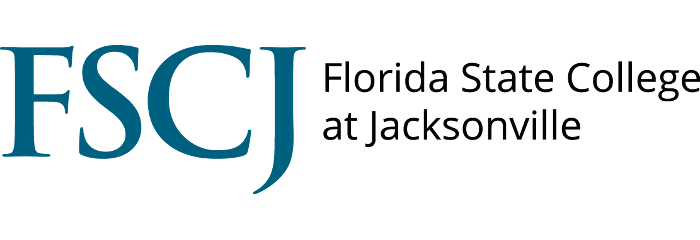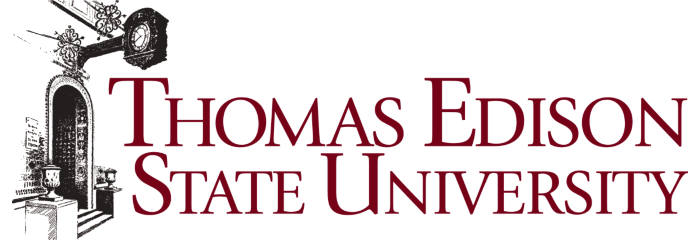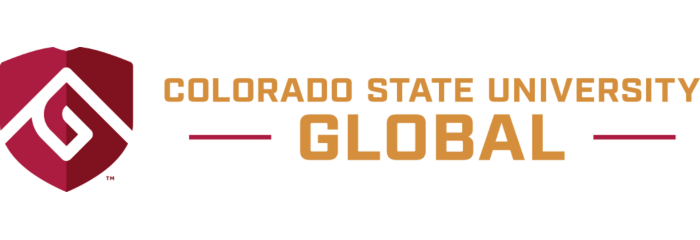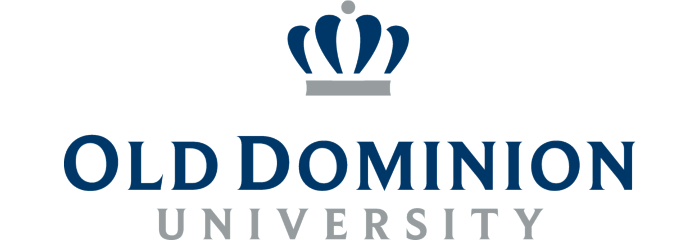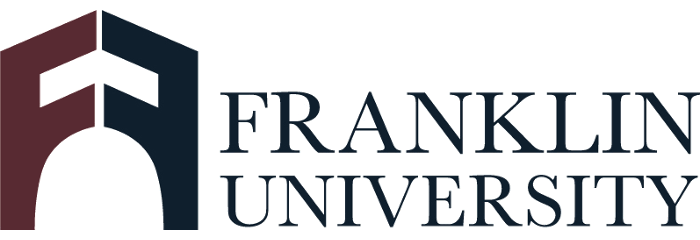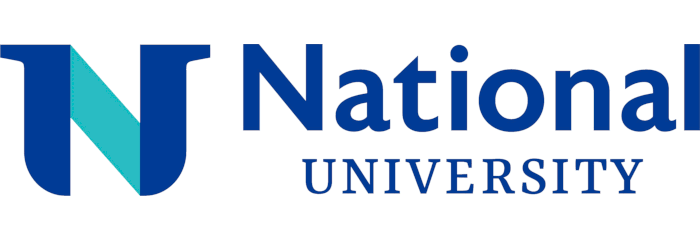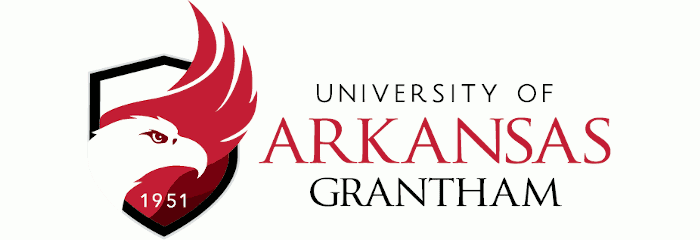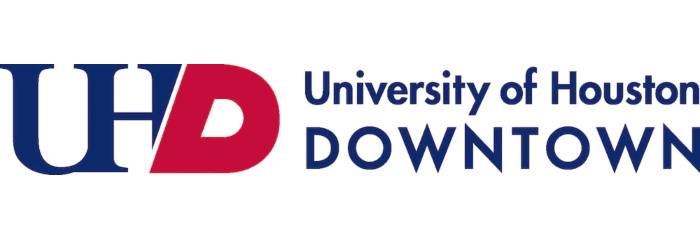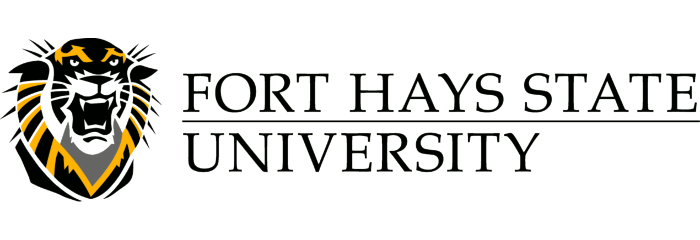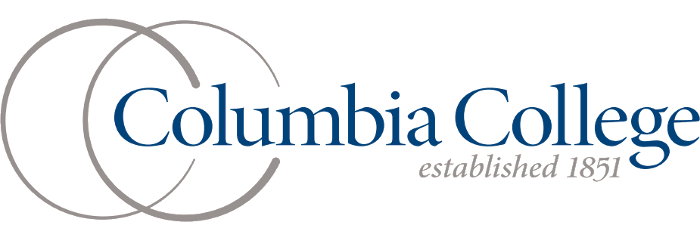2025 Best Online Finance Degrees
Earning an online bachelor's degree in finance involves mastering the evaluation of financial statement data, utilizing technological tools for effective portfolio management, and honing the ability to make strategic business decisions. The program also offers insights into how real-world legal and economic influences shape monetary systems.
Key Takeaways:
- The University of Minnesota - Online ranks #1 overall for the best median earnings of $87,799, placing these finance graduates in the top 15% nationally.
- Southern New Hampshire University Online holds the highest online enrollment figure at 135,584 students, placing it in the top 1% nationally.
Our rankings list of the best online finance degrees in 2024 prioritizes schools with high Salary Scores and significant online enrollment, aiming to guide prospective students to make the most informed decisions. More details about our methodology are available here.
2025 Best Online Finance Degrees
#1
- Salary Score: A
- Median Earnings: $87,799
- Online Enrollment: 3,166 enrolled
- Annual Tuition: $23,559
Online degree: Bachelor of Science in Finance
Why we like them: UMN Online’s finance degree boasts a median salary of $87,799, placing graduates in the top 15% for earning potential, ensuring a strong return on investment. The comprehensive curriculum covers business, management, marketing, and accounting, preparing students for diverse finance roles. Offering up to 120 transferable credits, the program is flexible, with no on-campus requirements. At a tuition of $23,559, we believe that UMN Online offers affordability alongside accessible, high-quality education.
Key Metrics:
- Salary Score: A
- Median Earnings: $87,799
- Financial Aid Recipients: 85%
- Avg. Aid Package: $10,557
- Avg. Graduation Rate: 77%
- Retention Rate: 87%
- Recommend Rate: N/A
- School Type: Nonprofit (Public)
#2
- Salary Score: B
- Median Earnings: $75,397
- Online Enrollment: 66,946 enrolled
- Annual Tuition: $30,592
Online degree: Bachelor of Arts in Business - Financial Planning
Why we like them: ASU’s online programs rank in the top 1% for enrollment, demonstrating its strong infrastructure for remote learners. With an 85% retention rate, in the top 14%, ASU ensures student success. The BA in Business with a concentration in Financial Planning covers personal finance, investment management, estate planning, and tax/insurance planning, preparing students for the CFP certification. Tied to the WP Carey School of Business, the online financial planning program offers global insight from award-winning faculty. Plus, we really like ASU's 90% recommendation rate.
Key Metrics:
- Salary Score: B
- Median Earnings: $75,397
- Financial Aid Recipients: 93%
- Avg. Aid Package: $12,381
- Avg. Graduation Rate: 66%
- Retention Rate: 85%
- Recommend Rate: 90%
- School Type: Nonprofit (Public)
#3
- Salary Score: B
- Median Earnings: $72,317
- Online Enrollment: 2,990 enrolled
- Annual Tuition: $25,754
Online degree: Bachelor of Science in Business Administration in Finance
Why we like them: OSU’s finance degree program offers a median salary of $72,317, placing it in the top half for earnings from finance graduates on a national scale. We believe this shows a solid return on your investment, and it earns a B Salary Score in comparison to peer programs. The finance program is under the Spears School of Business. It offers an AACSB-accredited curriculum covering corporate finance, investment banking, and wealth management. We also like OSU's 95% recommendation rate.
Key Metrics:
- Salary Score: B-
- Median Earnings: $72,317
- Financial Aid Recipients: 98%
- Avg. Aid Package: $10,621
- Avg. Graduation Rate: 65%
- Retention Rate: 83%
- Recommend Rate: 95%
- School Type: Nonprofit (Public)
#4
- Salary Score: B-
- Median Earnings: $68,565
- Online Enrollment: 961 enrolled
- Annual Tuition: $31,600
Online degree: Bachelor of Business Administration in Finance
Why we like them: Northwood’s finance program integrates finance and business management courses, preparing students to excel in the competitive financial services industry. From day one, students engage in hands-on learning both inside and outside the classroom, gaining entrepreneurial insights and business acumen. Graduates are ready to pursue the Series 7 and CFP exams, with opportunities to fast-track their education through a four-year BBA/MBA program. The program offers connections to industry experts, ensuring you are well-prepared for a successful career in finance.
Key Metrics:
- Salary Score: B-
- Median Earnings: $68,565
- Financial Aid Recipients: 100%
- Avg. Aid Package: $20,925
- Avg. Graduation Rate: 62%
- Retention Rate: 81%
- Recommend Rate: 88%
- School Type: Nonprofit (Private)
#5
- Salary Score: B-
- Median Earnings: $68,364
- Online Enrollment: 4,095 enrolled
- Annual Tuition: $60,192
Online degree: Bachelor of Science in Finance and Accounting Management
Why we like them: Northeastern hosts an online finance degree that provides a median salary of $68,565 for graduates. That's a B- Salary Score based on a national comparison. The curriculum includes finance and business management courses, preparing students for exams like the Series 7 and CFP. The four-year BBA/MBA track offers a fast-track option for career advancement. We also want to mention the Northeastern has a few of the best metrics on our list, such as the highest financial aid package ($42,331) and the #1 best graduation and retention rates at 91% and 97%, respectively.
Key Metrics:
- Salary Score: B-
- Median Earnings: $68,364
- Financial Aid Recipients: 85%
- Avg. Aid Package: $42,331
- Avg. Graduation Rate: 91%
- Retention Rate: 97%
- Recommend Rate: 90%
- School Type: Nonprofit (Private)
#6
- Salary Score: N/A
- Median Earnings: $68,206
- Online Enrollment: 3,848 enrolled
- Annual Tuition: $17,144
Online degree: Bachelor of Science in Finance
Why we like them: MSU’s finance program offers a median salary of $68,206, placing graduates in the top 55% for earnings. With 3,848 online students, MSU is a popular online school for undergraduates. Accredited by the Higher Learning Commission and AACSB, the finance degree online prepares students for the CFA Level 1 Exam, enhancing career prospects in roles like financial planner, analyst, or portfolio manager. Overall, we believe that competitive tuition, financial aid for all students, and job placement assistance through MSU’s Career Center makes this a strong choice for finance students.
Key Metrics:
- Salary Score: N/A
- Median Earnings: $68,206
- Financial Aid Recipients: 100%
- Avg. Aid Package: $8,049
- Avg. Graduation Rate: 58%
- Retention Rate: 76%
- Recommend Rate: 76%
- School Type: Nonprofit (Public)
#7
- Salary Score: N/A
- Median Earnings: N/A
- Online Enrollment: 135,584 enrolled
- Annual Tuition: $9,600
Online degree: Bachelor of Science in Finance
Why we like them: SNHU boasts an exceptional enrollment of over 135,000 students, placing it in the top 1% for popularity among online learners. With 14,093 military students, SNHU also ranks in the top 1% for military enrollment. The finance bachelor's program is accredited by ACBSP, ensuring high educational standards. It also offers a concentration in Financial Planning that aligns with CFP® certification requirements, preparing students for specialized roles in finance. The integration of simulations and trading software, such as TD Ameritrade U, enhances practical learning, making the program applicable in real-world scenarios.
Key Metrics:
- Salary Score: N/A
- Median Earnings: N/A
- Financial Aid Recipients: 81%
- Avg. Aid Package: $4,434
- Avg. Graduation Rate: 38%
- Retention Rate: 62%
- Recommend Rate: 61%
- School Type: Nonprofit (Private)
#8
- Salary Score: N/A
- Median Earnings: N/A
- Online Enrollment: 112,807 enrolled
- Annual Tuition: $8,010
Online degree: Bachelor of Science in Finance
Why we like them: WGU’s online BS in finance stands out due to the technology-forward curriculum that includes financial modeling, data visualization, and fintech, preparing students for roles in financial planning, investment banking, and wealth management. The competency-based model allows for an accelerated, 24-month degree path, with tuition set at $3,755 per six-month term, making WGU a cost-effective and flexible choice for finance education. There are over 112,000 students enrolled online at WGU, so it's well-established and able to support distance learners with plenty of resources.
Key Metrics:
- Salary Score: N/A
- Median Earnings: N/A
- Financial Aid Recipients: 61%
- Avg. Aid Package: $4,798
- Avg. Graduation Rate: 49%
- Retention Rate: 65%
- Recommend Rate: 70%
- School Type: Nonprofit (Private)
#9
- Salary Score: N/A
- Median Earnings: $59,017
- Online Enrollment: 69,819 enrolled
- Annual Tuition: $9,552
Online degree: Bachelor of Science in Finance and Technology
Why we like them: Phoenix excels with an online enrollment of 69,819 students, placing it in the top 1% for digital attendance, showcasing its ability to deliver scalable education. Its finance and technology program integrates modern tools like blockchain, decentralized finance, and financial data modeling, preparing students for the evolving financial industry. Flexible courses in five- to six-week increments help you build career-relevant skills efficiently. Additionally, eligible credit transfers can accelerate degree completion.
Key Metrics:
- Salary Score: N/A
- Median Earnings: $59,017
- Financial Aid Recipients: 90%
- Avg. Aid Package: $5,716
- Avg. Graduation Rate: 17%
- Retention Rate: 42%
- Recommend Rate: 61%
- School Type: For Profit
#10
- Salary Score: N/A
- Median Earnings: N/A
- Online Enrollment: 35,243 enrolled
- Annual Tuition: $11,700
Online degree: Bachelor of Science in Business Administration - Finance
Why we like them: Liberty’s online BS in Business Administration – Finance program boasts an enrollment of 35,243 students, placing it in the top 1% for online learning. With 13,760 military-affiliated students, Liberty ranks among the top for military support. The 100% online business program in finance offers 8-week courses, allowing the transfer of up to 75% of credits, accelerating degree completion. Accredited by ACBSP, it includes practical courses like Intermediate Accounting and Financial Statement Analysis, preparing students for careers in investment banking, financial planning, and more.
Key Metrics:
- Salary Score: N/A
- Median Earnings: N/A
- Financial Aid Recipients: 98%
- Avg. Aid Package: $12,471
- Avg. Graduation Rate: 62%
- Retention Rate: 79%
- Recommend Rate: 57%
- School Type: Nonprofit (Private)
#11
- Salary Score: N/A
- Median Earnings: N/A
- Online Enrollment: 33,392 enrolled
- Annual Tuition: $14,445
Online degree: Bachelor of Science in Finance
Why we like them: Purdue Global’s online BS in finance is an ACBSP-accredited program that offers training in fiscal planning, corporate finance, banking, and investment management, with four concentrations: FinTech, General Finance, Real Estate, and Wealth Management. The entirely online, four-year program provides flexibility and a tailored curriculum, making it a strong choice for aspiring finance professionals. With over 33,000 enrolled remotely as undergraduates, Purdue Global is a popular choice among distance learners. We also like its review rating of 3.73/5, indicating high satisfaction from students.
Key Metrics:
- Salary Score: N/A
- Median Earnings: N/A
- Financial Aid Recipients: 60%
- Avg. Aid Package: $8,815
- Avg. Graduation Rate: 28%
- Retention Rate: 17%
- Recommend Rate: 75%
- School Type: Nonprofit (Public)
#12
- Salary Score: N/A
- Median Earnings: N/A
- Online Enrollment: 13,983 enrolled
- Annual Tuition: N/A
Online degree: Bachelor of Science in Business - Finance
Why we like them: Excelsior ranks highly due to its large online enrollment of 13,983 students, placing it in the top 2% of U.S. institutions for distance learning. The university also supports military personnel, with 2,156 GI Bill students, ranking it in the top 5% nationwide. Excelsior’s BS in Business offers concentrations like Finance, General Accounting, and Logistics Management, allowing students to tailor their education to career goals. IACBE accreditation ensures quality, and the ability to transfer up to 113 credits helps expedite graduation, making the program accessible and career-focused.
Key Metrics:
- Salary Score: N/A
- Median Earnings: N/A
- Financial Aid Recipients: N/A
- Avg. Aid Package: N/A
- Avg. Graduation Rate: N/A
- Retention Rate: N/A
- Recommend Rate: 63%
- School Type: Nonprofit (Private)
#13
- Salary Score: N/A
- Median Earnings: $63,279
- Online Enrollment: 13,280 enrolled
- Annual Tuition: $14,328
Online degree: Bachelor of Science in Business - Finance
Why we like them: Capella hosts 13,280 online students, placing it in the top 2% of U.S. universities for distance learning. Military enrollment of 2,405 places it in the top 5%, reflecting Capella’s commitment to supporting active-duty personnel and veterans. The ACBSP-accredited business bachelor's program with a Finance concentration offers 180 quarter credits, including general education, core, and specialization courses, as well as a capstone project. Industry partnerships and an advisory board ensure the curriculum aligns with job market demands, providing a strong foundation for finance careers.
Key Metrics:
- Salary Score: N/A
- Median Earnings: $63,279
- Financial Aid Recipients: 86%
- Avg. Aid Package: $6,637
- Avg. Graduation Rate: N/A
- Retention Rate: 36%
- Recommend Rate: 63%
- School Type: For Profit
#14
- Salary Score: N/A
- Median Earnings: $64,082
- Online Enrollment: 11,900 enrolled
- Annual Tuition: $18,963
Online degree: Bachelor of Business Administration - Finance
Why we like them: FIU’s online Bachelor of Business Administration in Finance is 120 credits and includes 60 upper-division credits, covering financial markets, risk management, and international finance. FIU enhances learning with advanced financial tools, providing practical skills for a successful finance career. With an average financial aid package of $11,087, the program offers affordability, making FIU a top choice for quality online education in finance. We also love to see that FIU's recommendation rate is through the roof, with 91% of graduates endorsing the school.
Key Metrics:
- Salary Score: N/A
- Median Earnings: $64,082
- Financial Aid Recipients: 91%
- Avg. Aid Package: $11,087
- Avg. Graduation Rate: 69%
- Retention Rate: 91%
- Recommend Rate: 91%
- School Type: Nonprofit (Public)
#15
- Salary Score: N/A
- Median Earnings: N/A
- Online Enrollment: 11,330 enrolled
- Annual Tuition: $6,600
Online degree: Bachelor of Science in Business Administration - Finance
Why we like them: CSU's online bachelor's in business administration with a Finance concentration equips students with essential skills in financial analysis, decision-making, and business management. The program focuses on practical applications in areas like investment banking, financial planning, and accounting, preparing students for diverse career paths. With affordable tuition and the ability to transfer up to 90 credits, students can complete the 120-credit program at their own pace. We are also impressed by the school's high review rating from its students — 3.98 out of 5.
Key Metrics:
- Salary Score: N/A
- Median Earnings: N/A
- Financial Aid Recipients: 42%
- Avg. Aid Package: $4,154
- Avg. Graduation Rate: 25%
- Retention Rate: 42%
- Recommend Rate: 78%
- School Type: For Profit
#16
- Salary Score: N/A
- Median Earnings: N/A
- Online Enrollment: 10,105 enrolled
- Annual Tuition: $8,790
Online degree: Bachelor of Science in Finance
Why we like them: Bellevue enrolls 10,105 students studying remotely, placing it in the top 2% for online learning. Accredited by the Higher Learning Commission, Bellevue’s 100% online format allows flexibility for balancing studies with other commitments. The finance degree's curriculum covers investment strategies, risk management, and financial analysis, with a unique focus on international business supply chain. At an affordable tuition of $8,790, we believe Bellevue provides a credible and accessible pathway to a finance degree, preparing students for global finance careers.
Key Metrics:
- Salary Score: N/A
- Median Earnings: N/A
- Financial Aid Recipients: 76%
- Avg. Aid Package: $4,990
- Avg. Graduation Rate: 41%
- Retention Rate: 51%
- Recommend Rate: 68%
- School Type: Nonprofit (Private)
#17
- Salary Score: N/A
- Median Earnings: N/A
- Online Enrollment: 9,911 enrolled
- Annual Tuition: $33,439
Online degree: Bachelor of Arts/Science in Finance
Why we like them: OSU’s online enrollment ranks in the top 2% nationwide. With an 87% retention rate, in the top 11%, OSU demonstrates strong student satisfaction and support. Accredited by the Northwest Commission on Colleges and Universities, the program requires 180 quarter credits (120 semester credits) and offers four flexible start terms per year. Courses are taught by distinguished faculty, ensuring high academic standards. The students who are part of the OSU Ecampus benefit from resources like free online tutoring, success coaching, and career guidance.
Key Metrics:
- Salary Score: N/A
- Median Earnings: N/A
- Financial Aid Recipients: 91%
- Avg. Aid Package: $9,260
- Avg. Graduation Rate: 70%
- Retention Rate: 87%
- Recommend Rate: 82%
- School Type: Nonprofit (Public)
#18
- Salary Score: N/A
- Median Earnings: N/A
- Online Enrollment: 9,390 enrolled
- Annual Tuition: $12,520
Online degree: Bachelor of Business Administration in Finance
Why we like them: UMass Global ranks in the top 2% for online enrollment with 9,390 online learners, highlighting its strong digital infrastructure. Its online Bachelor of Business Administration in Finance offers a curriculum that delves into financial management, investments, international finance, and capital markets. The program combines business fundamentals with finance-specific courses that are 100% online. Accredited by WSCUC, the program prepares students for roles like financial analyst and compliance officer, to name a few.
Key Metrics:
- Salary Score: N/A
- Median Earnings: N/A
- Financial Aid Recipients: 67%
- Avg. Aid Package: $1,878
- Avg. Graduation Rate: 43%
- Retention Rate: 40%
- Recommend Rate: 55%
- School Type: Nonprofit (Public)
#19
- Salary Score: N/A
- Median Earnings: N/A
- Online Enrollment: 8,577 enrolled
- Annual Tuition: $9,992
Online degree: Bachelor of Science in Financial Services
Why we like them: FSCJ’s online enrollment of 8,577 students places it in the top 3% for remote learning, highlighting a strong virtual infrastructure. With 1,872 military students, FSCJ ranks in the top 6% for military support. The fully online or hybrid Bachelor of Science in Financial Services offers flexibility for diverse learning preferences. Its 120-credit curriculum covers finance, accounting, and business, preparing students for careers like loan officers and financial managers. ACBSP accreditation ensures the program meets high standards, providing a quality, relevant business education.
Key Metrics:
- Salary Score: N/A
- Median Earnings: N/A
- Financial Aid Recipients: 89%
- Avg. Aid Package: $5,680
- Avg. Graduation Rate: 37%
- Retention Rate: N/A
- Recommend Rate: 33%
- School Type: Nonprofit (Public)
#20
- Salary Score: N/A
- Median Earnings: N/A
- Online Enrollment: 7,282 enrolled
- Annual Tuition: $9,556
Online degree: Bachelor of Science in Finance
Why we like them: TESU’s online enrollment of 7,282 students ranks it in the top 3% for online learners. With 1,270 GI Bill students, TESU ranks in the top 11% for military-friendly institutions. The 120-credit finance program includes courses like College Algebra, Statistics, Financial Management, Investments, and International Finance, providing a solid foundation in the field. The program’s capstone project integrates key learning components, preparing students for strategic financial decision-making.
Key Metrics:
- Salary Score: N/A
- Median Earnings: N/A
- Financial Aid Recipients: N/A
- Avg. Aid Package: N/A
- Avg. Graduation Rate: N/A
- Retention Rate: N/A
- Recommend Rate: 63%
- School Type: Nonprofit (Public)
#21
- Salary Score: N/A
- Median Earnings: N/A
- Online Enrollment: 7,008 enrolled
- Annual Tuition: $12,030
Online degree: Bachelor of Science in Finance
Why we like them: WilmU is in the top 3% for online enrollment and has a 96% recommendation rate, showing that students highly value their experience. The finance degree program blends theory and practical learning, offering courses like Global Derivatives and Advanced Excel and Data Analytics. Accredited by the IACBE, the program maintains rigorous academic standards. Additionally, WilmU’s Dual-Credit ADVANTAGE™ program allows students to incorporate master’s coursework at no extra cost, offering an accelerated path to advanced qualifications.
Key Metrics:
- Salary Score: N/A
- Median Earnings: N/A
- Financial Aid Recipients: 55%
- Avg. Aid Package: $5,380
- Avg. Graduation Rate: 19%
- Retention Rate: 56%
- Recommend Rate: 96%
- School Type: Nonprofit (Private)
#22
- Salary Score: N/A
- Median Earnings: N/A
- Online Enrollment: 6,433 enrolled
- Annual Tuition: $8,400
Online degree: Bachelor of Science in Finance
Why we like them: CSU Global earns its place with an exceptional online enrollment. If we were to compare CSU Global's online enrollment with that of other colleges, you would find CSU Global among the top 5%. This signifies a broad and thriving online education community. Furthermore, the program focuses on real-world financial principles, including corporate finance and financial planning, with alignment to the Certified Financial Planner (CFP) designation. This ensures you are equipped with industry-relevant knowledge and professional certification opportunities.
Key Metrics:
- Salary Score: N/A
- Median Earnings: N/A
- Financial Aid Recipients: 61%
- Avg. Aid Package: $5,614
- Avg. Graduation Rate: 64%
- Retention Rate: 33%
- Recommend Rate: 56%
- School Type: Nonprofit (Public)
#23
- Salary Score: N/A
- Median Earnings: $58,030
- Online Enrollment: 5,998 enrolled
- Annual Tuition: $31,170
Online degree: Bachelor of Science in Business Administration - Finance
Why we like them: ODU ranks in the top 6% for online enrollment, with 5,998 students studying remotely as undergraduates. ODU's online finance program explores financial management, investments, banking, and international finance, preparing students for careers like financial analysts or accountants. The program requires 30 credit hours from ODU and a total of 120 credit hours to graduate, offering flexibility for transfer credits. With tuition at $408 (in-state) and $439 (out-of-state), and an 87% recommendation rate, ODU provides both affordability and quality education.
Key Metrics:
- Salary Score: N/A
- Median Earnings: $58,030
- Financial Aid Recipients: 92%
- Avg. Aid Package: $9,058
- Avg. Graduation Rate: 47%
- Retention Rate: 74%
- Recommend Rate: 87%
- School Type: Nonprofit (Public)
#24
- Salary Score: N/A
- Median Earnings: $57,012
- Online Enrollment: 5,224 enrolled
- Annual Tuition: $9,577
Online degree: Bachelor of Science in Financial Management
Why we like them: Franklin is in the top 7% nationally for popularity with 5,224 online students. Franklin’s 100% online financial management program offers flexible 6 to 12-week courses, balancing education with other commitments. Accredited by IACBE, the curriculum incorporates real-world simulations and practical knowledge, ensuring a high-quality education. Courses are taught by finance professionals, providing valuable insights and preparing students for in-demand roles in the finance sector.
Key Metrics:
- Salary Score: N/A
- Median Earnings: $57,012
- Financial Aid Recipients: 31%
- Avg. Aid Package: $7,398
- Avg. Graduation Rate: 42%
- Retention Rate: 50%
- Recommend Rate: 68%
- School Type: Nonprofit (Private)
#25
- Salary Score: N/A
- Median Earnings: N/A
- Online Enrollment: 4,964 enrolled
- Annual Tuition: $13,320
Online degree: Bachelor of Science in Financial Management
Why we like them: The online BS in Financial Management features flexible four-week courses, allowing students to accelerate their studies. Accredited by WASC, the program meets rigorous academic standards. NU’s combination of accessibility, military support, and high educational quality makes it an excellent choice for students seeking a finance degree. We also want to mention that with 4,776 military students, NU is in the top 1% for military-friendly online programs, offering extensive support for servicemembers and veterans.
Key Metrics:
- Salary Score: N/A
- Median Earnings: N/A
- Financial Aid Recipients: 91%
- Avg. Aid Package: $5,932
- Avg. Graduation Rate: 29%
- Retention Rate: 64%
- Recommend Rate: 47%
- School Type: Nonprofit (Private)
#26
- Salary Score: N/A
- Median Earnings: N/A
- Online Enrollment: 4,598 enrolled
- Annual Tuition: $8,280
Online degree: Bachelor of Business Administration in Financial Planning
Why we like them: UA Grantham’s online BBA in Financial Planning offers specialized courses that teach tax planning, asset allocation, risk management, retirement, and estate planning, equipping students with industry-relevant skills for financial advisement careers. With the flexibility to transfer up to 75% of credits and one of the lowest tuition rates in the U.S., plus no application fees and a free laptop for new and returning students, UA Grantham offers an affordable, efficient path to financial planning.
Key Metrics:
- Salary Score: N/A
- Median Earnings: N/A
- Financial Aid Recipients: 99%
- Avg. Aid Package: $5,765
- Avg. Graduation Rate: 21%
- Retention Rate: 36%
- Recommend Rate: 56%
- School Type: Nonprofit (Public)
#27
- Salary Score: N/A
- Median Earnings: $61,702
- Online Enrollment: 4,584 enrolled
- Annual Tuition: $17,524
Online degree: Bachelor of Business Administration in Finance
Why we like them: UHD’s online bachelor's in finance prepares graduates for careers in financial management, investment banking, and financial institutions. The curriculum supports certification pursuits like CFP, CFA, and CTP. Tailored to meet the evolving demands of the financial sector, the program offers flexible online options, making it a valuable choice for aspiring finance professionals. Finance graduates from UHD earn median salaries of $61,702.
Key Metrics:
- Salary Score: N/A
- Median Earnings: $61,702
- Financial Aid Recipients: 88%
- Avg. Aid Package: $7,849
- Avg. Graduation Rate: 31%
- Retention Rate: 65%
- Recommend Rate: 71%
- School Type: Nonprofit (Public)
#28
- Salary Score: N/A
- Median Earnings: N/A
- Online Enrollment: 4,379 enrolled
- Annual Tuition: $12,671
Online degree: Bachelor of Science in Management - Finance
Why we like them: Park’s online bachelor's in finance gives you two tracks to choose from: Financial Planning, preparing for the CFP® exam, and Financial Management for careers in banking and corporate finance. With 120 credit hours required, including 60 core hours, the curriculum is tailored to career goals. We also want to note that Park has an 82% recommendation rate, showing that students who have been here would endorse the school to others.
Key Metrics:
- Salary Score: N/A
- Median Earnings: N/A
- Financial Aid Recipients: 93%
- Avg. Aid Package: $7,043
- Avg. Graduation Rate: 41%
- Retention Rate: 59%
- Recommend Rate: 82%
- School Type: Nonprofit (Private)
#29
- Salary Score: N/A
- Median Earnings: $45,811
- Online Enrollment: 3,775 enrolled
- Annual Tuition: $15,870
Online degree: Bachelor of Business Administration in Finance
Why we like them: FHSU ranks in the top 11% for online enrollment, making it a strong choice for remote learners. With 100% financial aid coverage, FHSU demonstrates its commitment to affordability. The bachelor's in finance program requires 120 credit hours, covering entrepreneurial finance, corporate finance, banking, and financial planning. The curriculum includes a robust business core with courses like Principles of Accounting and Strategic Business Communication, along with 21 credit hours of finance-focused electives.
Key Metrics:
- Salary Score: N/A
- Median Earnings: $45,811
- Financial Aid Recipients: 96%
- Avg. Aid Package: $5,387
- Avg. Graduation Rate: 50%
- Retention Rate: 76%
- Recommend Rate: 77%
- School Type: Nonprofit (Public)
#30
- Salary Score: N/A
- Median Earnings: $55,909
- Online Enrollment: 3,537 enrolled
- Annual Tuition: $24,326
Online degree: Bachelor of Science in Finance
Why we like them: Columbia ranks in the top 12% for online enrollment, with 3,537 students, and has strong military support, with 2,171 military students, placing it in the top 4%. The bachelor's in finance program focuses on practical skills in accounting, corporate finance, and personal financial planning. With flexible options to attend online or at various locations, it suits diverse lifestyles. An average financial aid package of $13,725, in the top 29%, ensures accessibility. And federal data shows that 93% of students at Columbia receive financial aid.
Key Metrics:
- Salary Score: N/A
- Median Earnings: $55,909
- Financial Aid Recipients: 93%
- Avg. Aid Package: $13,725
- Avg. Graduation Rate: 35%
- Retention Rate: 62%
- Recommend Rate: 60%
- School Type: Nonprofit (Private)
2025 Best Online Finance Degrees
| Rank | School | Salary Score | Median Earnings | Online Enrollment |
|---|---|---|---|---|
| University of Minnesota - Online | $87,799 | 3,166 | ||
| Arizona State University, Online | B | $75,397 | 66,946 | |
| Oklahoma State University - Main Campus | B- | $72,317 | 2,990 | |
| Northwood University - Michigan | B- | $68,565 | 961 | |
| Northeastern University | B- | $68,364 | 4,095 | |
| Missouri State University | B- | $68,206 | 3,848 | |
| Southern New Hampshire University Online | N/A | N/A | 135,584 | |
| Western Governors University | N/A | N/A | 112,807 | |
| University of Phoenix | N/A | $59,017 | 69,819 | |
| Liberty University | N/A | N/A | 35,243 |
Online Finance Degrees
A bachelor’s degree in finance combines a core of business classes with the financial expertise to develop financial reports, analyze financial data, and effectively invest an individual's or organization’s capital. Some finance programs include courses from the arts and humanities for a Bachelor of Arts, while others focus on building industry-specific skills, leading to a Bachelor of Science. Some schools offer a Bachelor of Business Administration with a concentration in Finance.
Like most bachelor's degrees, a finance degree typically requires the completion of 120 credit hours of coursework. Most students need approximately four years to complete graduation requirements. However, students who have already taken some college classes may be able to graduate in less time, and those who've earned associate degrees may earn a bachelor's degree in as little as two years. Applicants need a high school diploma or the equivalent to be considered, and they may be required to have a minimum GPA of 2.5 and high scores on the ACT or SAT. Tuition rates for online finance programs vary, but some schools offer in-state resident tuition to online students.
When researching programs, prospective students need to look for accredited online finance programs. Accreditation is a designation granted to institutions of higher education that meet high standards with regard to their curricula, faculty members, student resources, and research capabilities. Finance degree programs are often accredited by one of two agencies specializing in business programs: the Association to Advance Collegiate Schools of Business or the Accreditation Council for Business Schools & Programs.
If you want to save money on tuition, check out our page of the most affordable online finance bachelor's degrees.
Is a Finance Degree Better Than an Accounting Degree?
Both finance and accounting are math-heavy programs that involve a great deal of analytical thinking, which some students may find challenging. However, these majors are well suited to those who are detail-oriented and enjoy working with numbers. Accounting degrees focus on documenting, tracking, and interpreting financial data primarily for business organizations, whereas a finance major focuses on managing, growing, and protecting money for individuals and organizations. Finance may be the more versatile of the two, as a degree in finance prepares students for a broad range of occupations in many types of work environments.
Online Bachelor's in Finance Courses
Although finance programs include several specialized courses on finance, they often begin by introducing students to the fundamental concepts of business. Core business courses typically included in an online finance program are Principles of Management, Accounting, Business Law, Macroeconomics, Microeconomics, Business Information Systems, and Introduction to Corporate Finance. Students then proceed to take core courses in finance, which may include the following:
International Finance
Especially useful for students headed toward careers in international business, this course explores some of the common characteristics and financial uncertainty involved in global finance. Key concepts include fixed versus floating exchange rates, currency swaps, currency derivatives, international tax management, diversification, and emerging equity markets.
Money and Banking
In this course, students explore the role of banking and other financial institutions in the economy. Some of the many topics covered include money markets, interest rates, capital markets, the Federal Reserve system, bank management, foreign exchange markets, and monetary theory and policy. Coursework may also explain the causes and outcomes of recent financial crises.
Risk Management and Insurance
All business organizations face some degree of financial risk, so this course teaches students common methods of risk assessment and strategies for minimizing an organization's exposure. Coursework also covers the need for insurance — one of the primary tools used in managing risk — and details various types of insurance, such as life, property, medical, and liability insurance.
Advanced Corporate Finance
While introductory Corporate Finance courses typically provide a broad overview for all business students, this advanced course expands on many key topics such as valuation, cost of capital, capital management, equity and debt financing, and option pricing theory and applications. Coursework challenges students to think like financial executives when making strategic decisions. This course may be considered a capstone course in some programs.
What Can You Do With an Online Bachelor's in Finance Degree?
A career in finance may be an excellent choice for those interested in wealth management and growth, whether it's for individuals or business organizations. Bachelor's in finance graduates earn $124,000 a year on average, but many finance professionals earn even higher wages.
The following list includes some entry-level careers open to finance majors, as well as potential paths for growth in the field:
Personal Financial Advisors
Personal financial advisors work with individuals and families to help them meet their financial goals, such as paying off a mortgage, providing college tuition for children, or saving money for retirement. Advisors make recommendations regarding individual investments as well as overall portfolios of investments.
Financial Analysts
There are several specializations within the field of financial analysis, but in general, financial analysts help businesses and individuals manage their investments in order to make a profit. For example, a financial analyst recommends the investment vehicles that should generate appropriate returns after determining an organization's time frame, investment goals, and risk tolerance.
Financial Managers
Financial managers ensure that the funds in an organization are managed appropriately and strategically. They create financial reports, direct funds to different projects, oversee the flow of cash, and purchase appropriate insurance. Financial managers typically have at least five years of prior experience before obtaining these positions.
Budget Analysts
Budget analysts play a crucial role in helping organizations, both public and private, manage their finances effectively. Their responsibilities include collaborating with program and project managers to create budgets, reviewing budget proposals for accuracy and compliance, consolidating budgets for the entire organization, and explaining funding requests to various stakeholders. They also provide valuable insights by analyzing financial data, evaluating program costs and benefits, and recommending funding adjustments as needed.
Is an Online Finance Degree Worth It?
In the finance industry, obtaining a bachelor's degree in finance or business is typically a prerequisite for entry-level roles. However, prospective students often ponder the value of investing their money, time, and energy in pursuing such a degree. Many individuals face unique circumstances, including career aspirations, personal responsibilities, and financial constraints, that should be considered when choosing a college.
For those deliberating whether to embark on an online finance degree journey, it may be beneficial to weigh the following advantages and disadvantages:
Potential Advantages
-
The study of finance develops a broad base of skills. Finance programs typically require students to take courses from several different business disciplines. In the process, they learn how to prepare financial documents and use common business software programs. These courses also provide opportunities to enhance soft skills, including analysis, problem-solving, and strategic thinking.
-
This degree can lead to a wide range of finance careers. The financial expertise and business acumen students gain while earning their degrees help prepare them for many different career paths in various industries, including banking, investment, and corporate finance. Some graduates may prefer to work with individuals and families as advisors or bankers, while others may want to manage the finances of business organizations.
-
Distance learning means having more education options. By including online finance programs in the mix of possibilities, prospective students can select the best finance program to fit their career aspirations and budget without having to relocate.
Potential Drawbacks
-
Finance professionals often work in stressful environments. Many finance occupations require employees to put in long days with the possibility of evenings and weekends devoted to work. Additionally, the work can be intellectually and emotionally taxing because professionals are managing large amounts of money for other people.
-
Finance is a competitive job market. While a finance degree offers numerous career opportunities, the field can be highly competitive, especially for coveted positions in investment banking and finance. Some finance roles may require additional certifications or specialized knowledge beyond a bachelor's degree. Graduates may need to invest more time and resources to attain these qualifications to stand out in the field.
-
College tuition can be expensive, and finance programs at reputable universities often come with a significant price tag. This can lead to student loan debt, which may take years to repay. For this reason, you may want to check out or list featuring the most affordable bachelor's in finance and most affordable master's degrees in finance for budget-friendly options.
A finance degree offers a multitude of benefits that make it a worthwhile investment despite a few potential drawbacks. It opens the doors to a wide range of career opportunities in both the public and private sectors, including roles in banking, investment analysis, financial planning, and corporate finance. These positions often come with competitive salaries and opportunities for advancement. Additionally, the financial skills and knowledge gained during a finance degree program are highly transferable, making graduates valuable assets in various industries.
Furthermore, finance professionals are in constant high demand, contributing to job security and potential for career growth. While the competition may pose a challenge, the long-term benefits of a finance degree make it a valuable asset for individuals pursuing a successful and rewarding career in finance and related fields.
Student Reviews of Online Finance Programs
The good: Most of the professors are easy to talk to and are pretty good about answering questions. The seminars have mostly been fun and educational. Submitting assignments is pretty easy to do in their system. The not so good: Some professors do not answer your questions correctly when you ask. Had to ask at least 2 times to get them to answer exactly what I have asked. The text books are over 10 years old! Be prepared to have to learn all over again when you venture out into the real world as... Read More
Review Date: 3/16/2024
Would Recommend: Yes
I was shocked at all the negative reviews for the University. Mostly about billing and debt. I was never one to focus too much on reviews because there's so many good and bad reviews that would confuse me. Glad I didn't. I have a 20% discount through a business relationship Ashford has with my employer, as well as waiving the tech and book fees. Which I am blessed and so grateful for, but even if I did not have this, it would be okay. These bad reviews need to realize that degrees cost money, it... Read More
Review Date: 1/18/2020
Would Recommend: Yes
This school should 100% be rated higher, and I think they are working toward that. The finance program has boosted my earning power in the accounting field where I am already employed. The knowledge of have gained from the overall business program (as opposed to solely the finance core classes) has tremendously helped me expand my usefulness to my employer(s). Some of the online classes are better than others because some of the professors have surpassed others by using video lectures, Zoom meetings,... Read More
Review Date: 8/28/2022
Would Recommend: Yes
This is a university that is significantly more effective for the self-motivated learner. If you want to get an easy degree, you can probably make it through SNHU's curriculum without much effort. The online forum does away with a lot of the rigidity of brick-and-mortar institutions and it is laughably easy to out-shine your classmates. In most of my classes, about 60 to 80% of the discussion posts (a semi-weekly writing-intensive assignment) are basically nonsense, illogical, or off topic. That's... Read More
Review Date: 6/5/2018
Would Recommend: Yes
I was a transfer student and finished my bachelor's degree at SNHU. I completed 60 credit hours at a local community college and I needed to find an affordable school that was 100% online where I could finish my degree. I found what I was looking for at SNHU. In my experience, I have nothing but good things to say about SNHU. The staff is very helpful and friendly, and the instructors are very smart people. Honestly, I was a little hesitant about this school at first. But after a few classes I quickly... Read More
Review Date: 11/1/2018
Would Recommend: Yes
Great program. Professors are there when you need them. Everything is there when you need it. They offer course tutoring if you need the service. Everything is very organized. If you know how to manage your schedule well, this program is right for you. You are allowed to take 2 classes a semester but are able to add if you feel like you can handle more.
Review Date: 4/18/2015
Would Recommend: Yes
I have attended Rasmussen College since October 2014. I am honestly shocked at many of the reviews for Rasmussen. Rasmussen has treated me fairly the entire time. I have received helpful responses from my advisor and my teachers are quick to respond, also. The assignments are challenging and applicable to real work situations. I can see each course builds on prior courses, but also reinforces fundamentals. I feel Rasmussen is a great college and offers me the coursework and help to succeed in the... Read More
Review Date: 3/29/2016
Would Recommend: Yes
Columbia Southern University has a great curriculum. The advisors are very supportive. The resources for research papers are at your finger tips. The class setting and interaction really stimulate your mind and is sometimes challenging depending on the course. As long as your committed to reading more than your expected too, then you will do well in all the courses. The online schooling consist of a lot of reading, researching and writing. I think it is more challenging than a traditional class room... Read More
Review Date: 2/16/2017
Would Recommend: Yes
I've been attending online classes with University of Phoenix for a little over a year now and overall I'm satisfied. There have been a few kick ups along the way though. When I was first enrolling my admissions councilor was very helpful and thorough. I later found out, however, that I had been enrolled in the wrong degree program (Business Administration instead of Business Finance). When I found this out I was told in order to change my degree program I might have to take the placement tests again... Read More
Review Date: 11/30/2014
Would Recommend: Yes
Finishing up my time here at Ashford and it has been a journey. This school taught me a lot or should I say I taught myself a lot. This school gave me all the tools to do that. My major course study was tough. I hear it's one of the toughest here. I have heard that others are easier but I couldn't speculate. There are a lot of papers to write but you will get good at them. Eventually you will be able to snap off a 12 pager with ease. There will be some really dumb people in your classes at first... Read More
Review Date: 4/8/2016
Would Recommend: Yes
First of all, this school isn't a scam. It is most definitely a real and honest school. It is a Christian school, and I knew that going into it, however I think religion is incorporated too much into the classes. I think professors are encouraged to incorporate, but some professors expect much more out of it. I can understand some, but it is far too much. I previously attended a Christian 4 year university, and there was never integration. We were expected to take a religion class and there were... Read More
Review Date: 10/13/2016
Would Recommend: Yes
I started my classes on Jan 5th, 2014. It was truly a venture in learning. I have read some of the reviews and seen how some have bad mouthed the integrity and reliability of Colorado Technical University (CTU) faculty, staff, and program design parameters. Yes... there are harder course and easier course, but every course was meant to make the student think and engage. If the student sits around complaining about how they can't find any information, I would help them and find that most of the time... Read More
Review Date: 11/6/2016
Would Recommend: Yes
Ashford University (A for profit school) enables students to complete their degrees while finding time for family, work, etc. The undergraduate courses are 5 weeks long. The counselors and advisors were excellent and check in periodically to answer and questions the student may have. The quality of instructors varies as with any institution, albeit it is average. The curriculum engages the student and will require multiple papers. Do note that since courses are only 5 weeks long, students can expect... Read More
Review Date: 3/2/2017
Would Recommend: Yes
I have been attending CTUO for a little over a year where I have been enrolled in a Bachelor of Science program, with a concentration in Finance. Does the school have faults or deficiencies? Of course it does. I don't believe that every school will be a good-fit for everyone.
My initial exposure, with CTUO, was with my assigned student adviser. He was very good at answering my questions and soliciting responses to what I wanted to achieve in order to marry up my desires with what the school offered.... Read More
Review Date: 2/25/2013
Would Recommend: Yes
There are a lot of negative reviews for National University. After spending four mostly great years there I was pretty surprised to read such negative remarks. I cannot speak about the situation with Financial Aid as I pay for my classes, so I had no experience with that. However, the set up of the online classes is amazing and easy to navigate. About 98% of my teachers were amazingly helpful and I have taken over 20 classes there. The instructors have been very considerate of the students needs.... Read More
Review Date: 3/13/2015
Would Recommend: Yes
CSU has been the best school ever! I finished my Bachelor's in Business Administration with a concentration in Finance in 2014. I attempted to try out other schools but their customer service skills led me right back to CSU. I was concerned about the accreditation but I have already been offered a new job using the degree I receive from CSU. I graduated 09/2014 and I got a job by 02/2015. The book grant is amazing and I think that is what keeps me coming back to CSU.
Review Date: 3/9/2015
Would Recommend: Yes
University of South Florida is a very diverse and inclusive environment. Many of the course are ranked at a very competitive level and the professor are quite knowledgeable in their areas of study. The work / life balance on this campus is also pretty impressive and I was able to complete my degree with a great GPA while also creating bonds and making some fun college memories.
Review Date: 2/1/2017
Would Recommend: Yes
MSU Denver is an okay college . If your main goal is to save some money or work frequently while attending college this is for you ! It honestly won’t be my first choice because of the location ( moderate crime area ) . However the college of business is stellar ! The teachers are awesome but use rate my professor. The curriculum wasn’t too bad. There are also free food opportunities and great ways to get involved . The other downsides is parking is expensive and the light rail was 150 dollars per... Read More
Review Date: 1/22/2024
Would Recommend: Yes
Good school, poor campus life support of clubs. Career services is more focused on getting you a job than getting you in a career that is a good fit. The professors in the business school are fantastic! They are incredibly passionate about their work and have real-world experience that they draw in to the classroom.
Review Date: 5/25/2022
Would Recommend: Yes
I have attended Heritage University, Allied American University (online only), Campbell University (Great school), and now Hodges University (Blended). This has been due to my military and government civilian career. I have attended both online and both on-campus locations (Naples & Ft. Myers). The modern university has amazing faculty& staff, great amenities and is extremely modernized and high tech. The curriculum is not extremely challenging as the professors give you all the tools you need to... Read More
Review Date: 2/9/2017
Would Recommend: Yes
Why Trust Us?
27 Data
Researchers
60,000 Degrees Researched Annually
20,000 Hours Spent on Research Annually
Launching Rankings Since 2009



